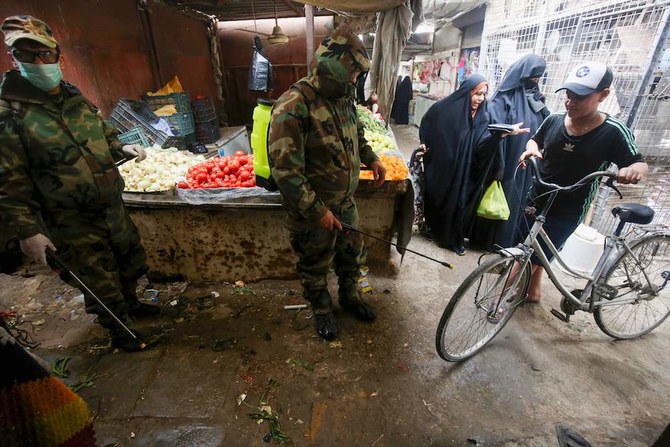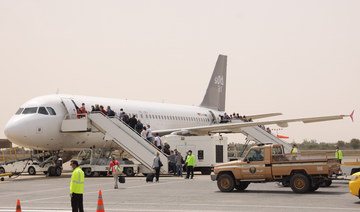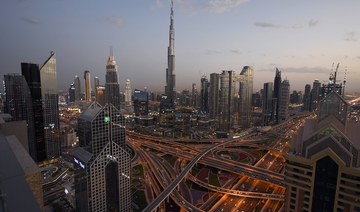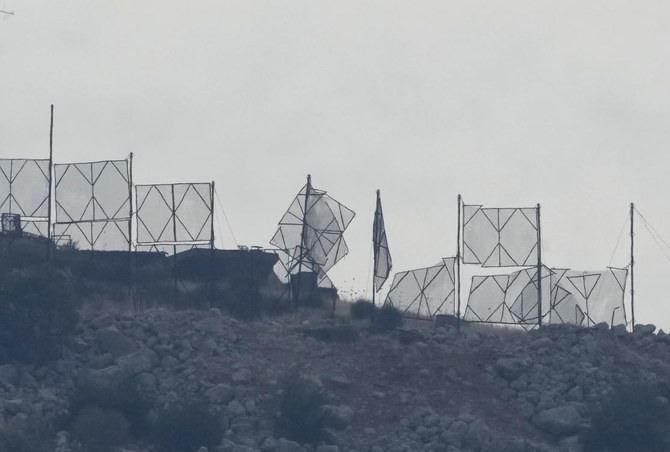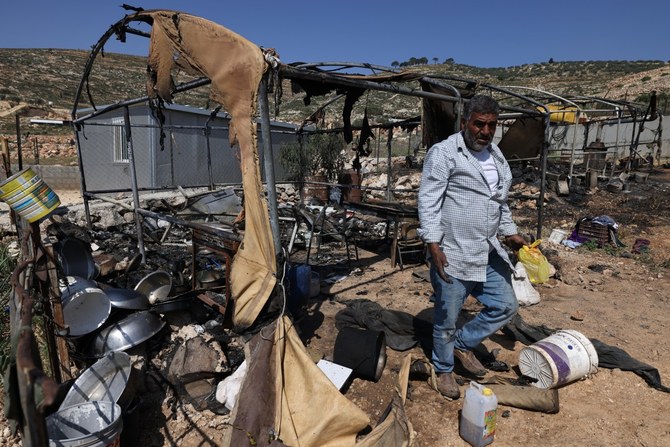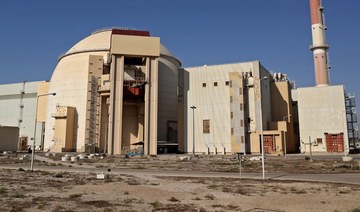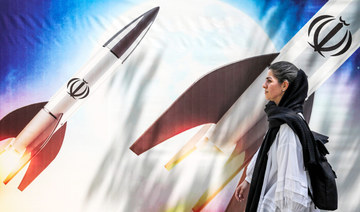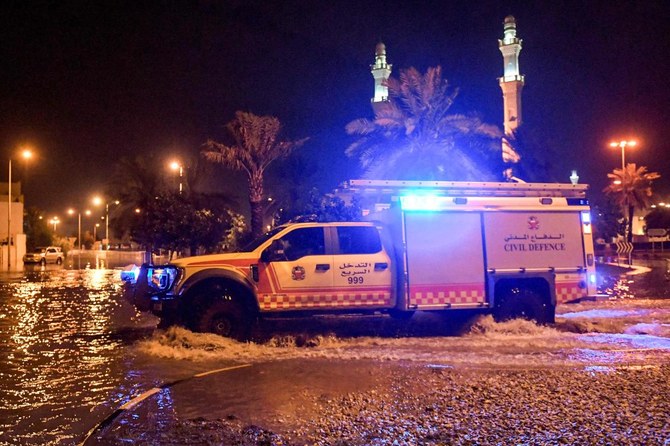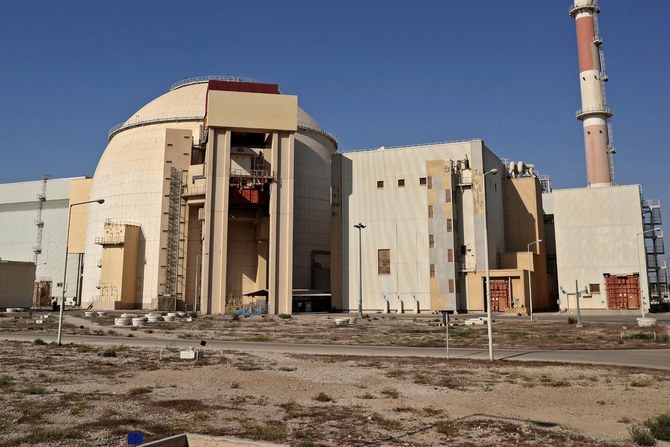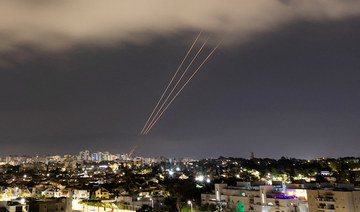DUBAI: Governments in the Middle East are taking more precautionary measures, including extending stay-at-home campaigns, in a bid to stop the continuoud rise of coronavirus infections.
The total number of cases globally has reached more than 650,000 as of Sunday morning, with the US reporting the highest number of local infections at approximately 124,000.
COVID-19 has killed nearly 31,000 people globally so far.
Sunday, March 29 (All times in GMT)
20:30 - Some Shiite pilgrims returning to Iraq from Syria have tested positive for coronavirus, raising concern that such pilgrim travel could be a source for a larger spread of the disease, a senior Iraqi official and health officials said on Sunday.
19:12 - Egypt's health ministry reported four new coronavirus deaths and 40 new confirmed cases.
17:25 - The number of deaths from the coronavirus in New York state increased by 237 in the past day, reaching a total of 965 since the outbreak began, Governor Andrew Cuomo said.
The state also reported 7,195 new confirmed coronavirus cases in the past day for a total of 59,513, Cuomo told a news conference. Another 1,175 people were hospitalized in the past day, increasing the total to more than 8,500 hospitalizations in the state, including more than 2,000 in intensive care, Cuomo said.
17:19 - The UAE Ministry of Health said it recorded 102 new coronavirus cases, bringing the total number of confirmed cases to 570.
The ministry also said a 47 year-old woman, who suffered from chronic illnesses, died from the virus following health complications.
17:15 - Turkey’s deaths from the coronavirus increased by 23 to 131 on Sunday, as the number of confirmed cases rose by 1,815 to 9,217, Health Minister Fahrettin Koca said.
The minister added on Twitter that 9,982 tests had been conducted in the last 24 hours, bringing the total number of tests carried out in Turkey to 65,446 since the outbreak began.
17:12 - The death toll from an outbreak of coronavirus in Italy climbed by 756 to 10,779, the Civil Protection Agency said on Sunday, the second successive fall in the daily rate.
The total number of confirmed cases in Italy rose on Sunday to 97,689 from a previous 92,472, the lowest daily rise in new cases since Wednesday.
16:50 - Sudan amended its curfew period from 6 p.m. to 6 a.m. local time.
16:24 - The number of coronavirus related deaths in Iran rises to 5,301, Iranian websites quoting medical sources said.
15:54 - Syria’s health ministry said a woman who died after being rushed to hospital for emergency treatment was found to have been infected by coronavirus in the first officially-reported death from the disease.
15:30 - The Saudi Health Ministry announced four more deaths from coronavirus and 96 new case in Saudi Arabia, increasing the total number of cases in the Kingdom to 1,299. READ FULL STORY.
14:30 - Spain announced on Sunday a record 838 coronavirus deaths in 24 hours, while Morocco announced cases in the country had hit 450.
13:30 - The number of people who have died after testing positive for coronavirus in the United Kingdom rose to 1,228, according to figures released on Sunday, an increase of 209. The previous increase saw the death toll rise by 260 people.
12:38 – Saudi Ministry of Health has reported 96 new coronavirus cases and four new deaths, increasing totals to 1299 cases and eight deaths.
10:16 – Moscow Mayor Sergei Sobyanin said the coronavirus outbreak had entered a new phase as the total number of cases in the Russian capital exceeded 1,000 with many Muscovites going out despite a plea to stay home.
10:15 – Pope Francis backed a call by United Nations Secretary-General Antonio Guterres for a global ceasefire so the world can focus on fighting the coronavirus pandemic.
10:05– Lebanon reported 26 new coronavirus cases, bringing total number to 438.
09:37 – Spain’s coronavirus death toll rose by 838 cases overnight to 6,528 the health ministry said on Saturday, marking the highest daily rise in fatalities.
The total number of those infected rose to 78,797 from 72,248 on Saturday.
09:36 – Iran’s death toll from the coronavirus has climbed to 2,640 and the number of infected people has reached 38,309, a health ministry official tweeted on Sunday.
09:21 – The Philippine health ministry on Sunday reported 343 new coronavirus cases, marking the country’s largest daily increase in infections, and three additional deaths.
09:19 – Malaysia reported 150 new coronavirus cases on Sunday, taking the total to 2,470, the highest in Southeast Asia.
The number of deaths from the virus outbreak rose by seven to 34, the health ministry said.
09:16 – Kuwaiti Ministry of Health has registered 20 new cases of coronavirus, bringing the total to 255.
09:15 – Palestinian Prime Minister Mohammad Shtayyeh said the number of coronavirus infections increased to 106.
07:28 – Morocco’s Health Ministry has confirmed 35 new coronavirus cases, bringing total to 437 and 26 deaths.
07:27 – Palestinian authorities have recorded six new coronavirus cases, increasing total to 104.
07:26 – Number of confirmed coronavirus cases in Germany rises to 52,547 and 389 deaths.
06:50 – Oman has recorded 15 new coronavirus cases, bringing the total number of infected patients in the country to 167, the health ministry reported on Sunday. It also confirmed the recovery of 23 cases and urged everyone to follow its instructions with regards to social distancing.
03:14 – The US has reported the first prisoner to die of COVID-19.
01:41 – Mexico’s deputy health minister said measures asking citizens to stay at home could be extended.
The total number of infections in the country has reached 848 with 16 fatalities.
01:24 – The Center for Disease Control in the US has warned residents of New York, New Jersey and Connecticut against non-essential travel for 14 days.
01:16 – South Korea has reported 105 new cases of COVID-19, bringing the total to 9,583.
Saturday, March 28 (All times in GMT)
20:10 – UAE helps Germany repatriate hundreds of tourists using Ras Al-Khaimah airport.
19:44 – Libya has recorded two new cases of coronavirus, increasing toll to three.
19:13 – Egypt has reported 40 new coronavirus cases and six deaths, bringing totals to 576 and 36, UAE state news agency WAM reported.
19:10 – Jordan has detected 11 new COVID-19 cases, increasing total number to 246.
17:05 – The Omani government is to fly about 800 of its citizens back to the Sultanate after calls for them to repatriated to their country amid concerns over the coronavirus outbreak, national daily Times of Oman reported on Saturday, citing the Washington embassy.
15:10 – UAE’s Ministry of Health has recorded 63 new cases of coronavirus, bringing the total to 468.
14:48 – Rent payments in Dubai have been postponed for up to six months, national daily Gulf News reported, citing Dubai Free Zones.



